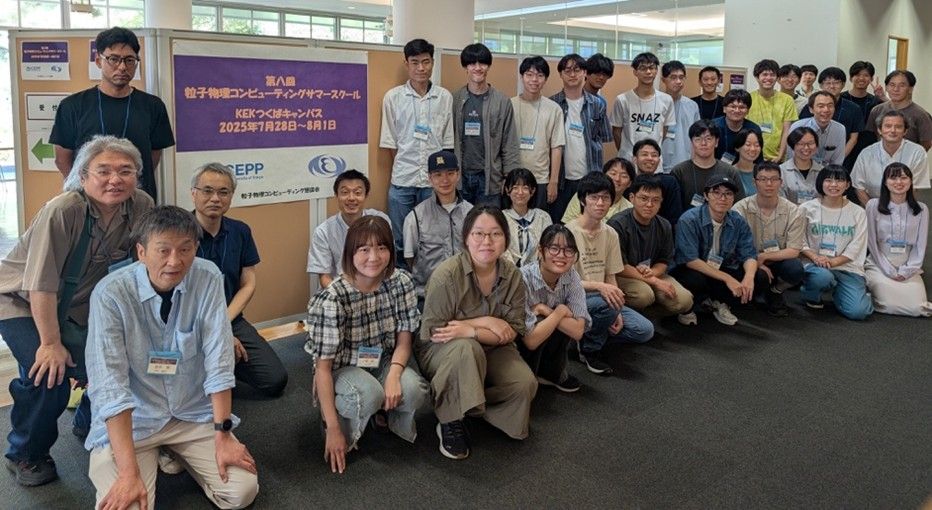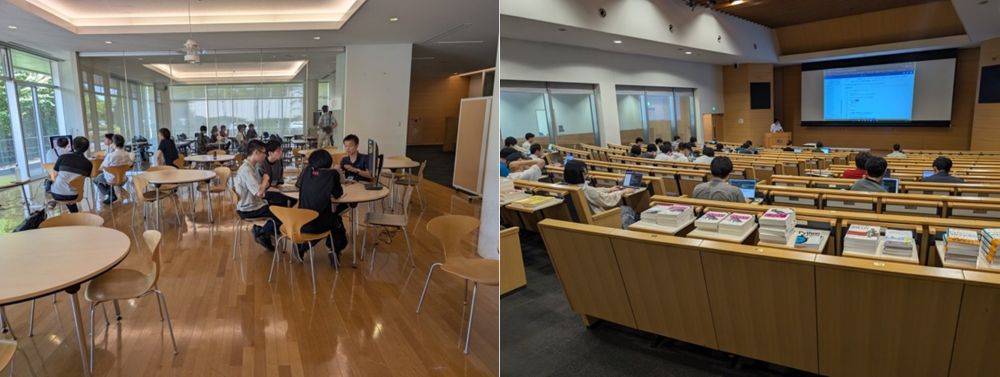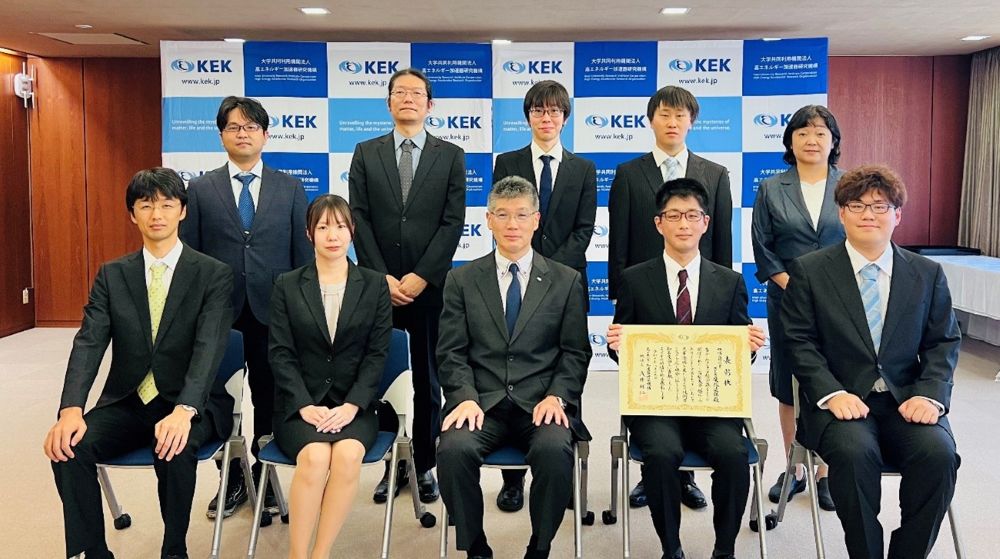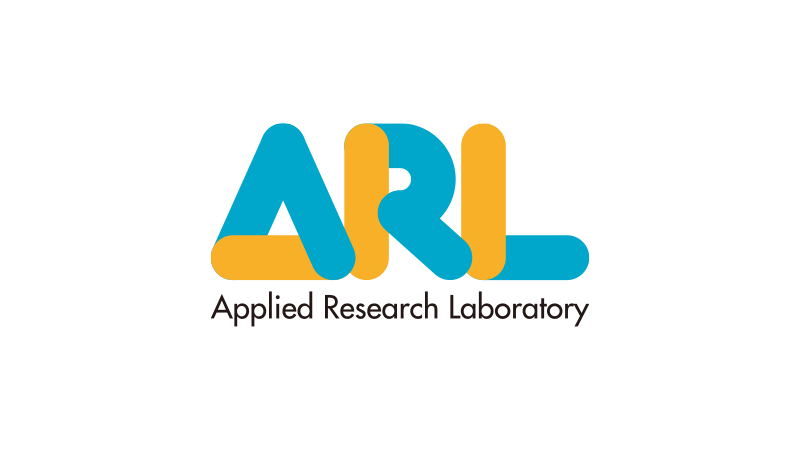8th Particle Physics Computing Summer School held
From July 28 to August 1, 2025, the Particle Physics Computational Consortium (PPCC)[1] hosted a five-day computing summer school [2] at KEK Tsukuba Campus. The PPCC is a community dedicated to computing technology in the fields of particle physics, nuclear physics, cosmic rays, and astrophysics. This summer school, targeted at graduate students, is one of the core activities of this consortium. This marks the 8th iteration of this school, which began in 2017.
This year, 27 students from 11 universities across Japan participated, and seven staff members from the KEK Computing Research Center also participated as lecturers.
The lectures covered a wide variety of topics ranging from fundamental tools in the Particle Physics research community such as “ROOT”, “RooFit”, “RooStats” (Data analysis software libraries), and ‘Geant4’ (Radiation simulation tool kit), to advanced systems like “DIRAC” (Distributed computing interware), and quantum computing. In addition to fundamental topics like computer architecture, container-based virtualization technology, principles of computer networks, new C++ language syntax, and Git (a software version control system), the program also covered actively used technologies such as GPU programming and deep learning, leading to a diverse curriculum consistent with previous years.
This year, we revised the program and implemented two major improvements. The first is the introduction of a new real-time computing lecture. Real-time computing refers to computational processing requiring immediacy, such as data acquisition system and triggers in accelerator experiments. The lecture covered fundamental concepts, core technologies, implementation in actual experiments, and recent trends incorporating AI. The second improvement is the enhancement of hands-on training in distributed computing. To deepen understanding through practical application alongside lectures, we have prepared a training environment that simulates an actual distributed computing system.
The exercise environment required for those lectures was constructed using an academic cloud server called mdx [3]. Participants selected their own research topics during the summer school period and presented their findings on the final day. A notable trend this year was the active use of generative AI for tasks like reference searches and program code generation when tackling these training themes. Despite the limited time, there were presentations that showed enthusiasm for incorporating what was learned in this course into their own research themes, and several participants took on the challenge in the topics they had never tried such as machine learning or quantum computers. We hope that this school served as a source of inspiration for the participating students.


This summer school was supported by the International Center for Elementary Particle Physics at the University of Tokyo, and the International and Inter-Institution Network for Accelerator Science to Next Generation (IINAS-NX) program of the High Energy Accelerator Research Organization (KEK)[4].


